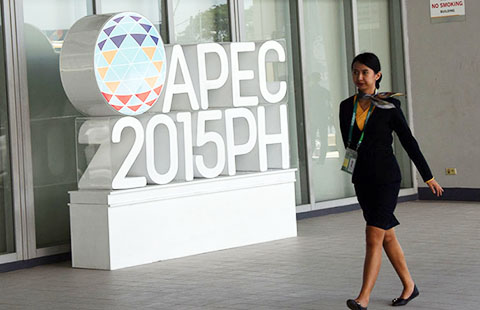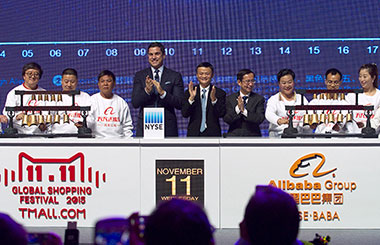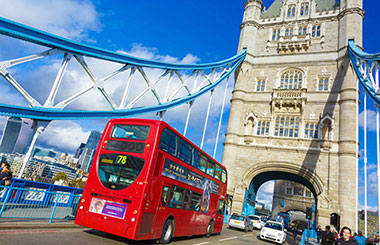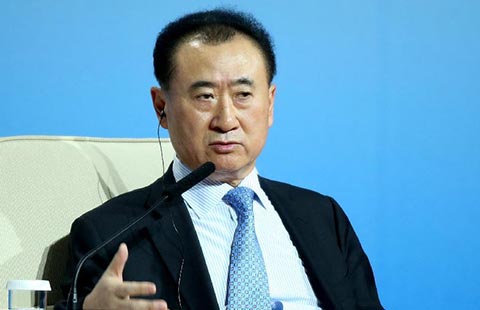AIIB pivotal in promoting Asia-Pacific connectivity
(Xinhua) Updated: 2015-11-17 11:17"We will make a new set of guidelines, something we want to follow," Jin told Xinhua in a recent interview during the Boao Forum for Asia Financial Cooperation Conference held in London.
Jin also told the Financial Times even more clearly that bureaucracy and derivative inefficiency in the World Bank should be avoided in the AIIB.
"Yet if the AIIB can manage to combine high lending standards with moving money quickly out of the door, it will serve as a useful model for how other organizations, notably the World Bank, might reform," the newspaper commented.
"By ensuring that financial allocations are handled fairly and in a balanced manner, and the AIIB actively encourages and supports, if not mandates, enhanced cooperation in the region, the AIIB could very well end up playing a monumentally important role in the region and its future development, which again will bolster the region and ... the wider global economy," Sinclair, the analyst, said.
"With the AIIB expected to expand funding for infrastructure projects to about 110 billion U.S. dollars over the next five years, the potential for growth in the region is almost a certainty as companies seeking opportunities overseas to support domestic contracts will be buoyed and have the chance to build infrastructure projects in the region, as well as become better involved in global projects previously unavailable to them," Akihiro Hoshino, a senior quantitative strategist at Nomura Holdings Inc., told Xinhua.
Hoshino said domestic banks in these countries would also be underpinned as financing such expansions in the region will become the norm, and the region would not have to constantly rely on country-to-country support or the existing systems that could be described as being self-serving.
Less skepticism, more cooperation
The AIIB's 57 founding members, including some major industrialized countries like Britain, France and Germany, will help the bank meet high international standards in terms of governance structure, operational guidelines and human resources management, and ensure it operates professionally and efficiently with transparency and overall integrity.
"Other institutions will not cooperate with us if we do not reach international standards and a certain level of governance. I am proud to say that our policies are as good as others'. In some places, we are even better than them as we have absorbed their experience," Jin has said.
"The World Bank Group, the Asian Development Bank, the European Investment Bank, the European Bank for Reconstruction and Development and so on all want to cooperate with the AIIB. We are also willing to cooperate with them," he added.
Prior to his recent visit to Britain, Chinese President Xi Jinping was quoted as saying that "the relationship between the AIIB and existing multilateral development banks is a cooperative and complementary one. The AIIB will engage in cooperation with them in terms of sharing expertise, capacity building and joint financing."
"The AIIB has already gained a great deal of traction, and while some have voiced concern that the AIIB may stand as a rival to the IMF, the World Bank and the ADB, and the United States has taken a somewhat contrary view of the AIIB, the fact that countries like Australia and South Korea opting to join, against the U.S. wishes, is a testament to the faith, belief and trust in the proposition," Hoshino said.
"To better serve the region, the AIIB needs simply to continue to stick to its manifesto and deal with any issues of governance transparency effectively, as this will have a positive reciprocal effect on the bank's intentions and the success of the projects it supports," the analyst said. Enditem
- Philippine PPP projects welcome more Chinese investment: official
- AIIB will introduce anti-graft safeguards
- China's legislature ratifies AIIB agreement
- Baige Zhao: Promoting Practical Cooperation Between China and Germany through Congress Communication and Think Tank Exchanges
- BRICS bank, AIIB well on track for start of operations
- China outbound investment surge reinforces growth confidence
- China's Tianhe-2 retains world's most powerful supercomputer
- China's outbound investment helps boost global economy: experts
- Yuan treasury bonds to be issued in HK
- JD.com Q3 revenue surges
- Sinotrans shipping unit to have new owner after merger
- China to step up ties with neighbors
- Small firms may scale down investments















